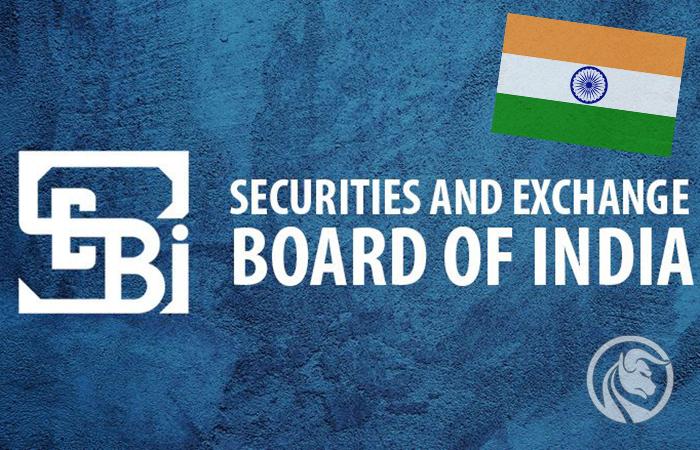Securities and Exchange Board of India - the guardian of the Indian capital market
India is one of the largest economies in the world. A healthy demography and a still low GDP per capita mean that in the coming years or even decades we can expect rapid economic growth in this country. As the population grows richer, it can be expected that more capital will enter the financial market in India. It may not necessarily translate into a significant increase in the value of the index, but it will certainly require vigilant supervision by market regulators. In India, the most important body responsible for overseeing the capital market is Securities and Exchange Board of India (SEBI).
The history of SEBI began on April 12, 1988, at the request of the Indian Parliament. At the beginning, it was a non-statutory body. The situation changed in 1992, when The Securities and Exchange Board of India Act was established. It was then that SEBI received the legal authority to regulate and control the capital market in India. As a result, a body trying to protect investors (including retail investors) against unfair practices of some participants of the financial market began to operate in India. Before SEBI, the organization regulating the capital market was the CCI (Controller of Capital Issues), which was established in 1947.
The headquarters of the Indian regulator is in Mumbai, more specifically the Bandra Kurla Complex. SEBI also has regional offices in North, South, East and West India (New Delhi, Kolkata, Chennai and Ahmedabad). In addition to regional offices, SEBI also has local offices in Guwahati, Bhubaneshwar, Patna, Kochi and Chandigarh.
Liability of SEBI
As the name suggests, SEBI is responsible for the proper functioning of the capital market in India.
SEBI focuses on regulating three groups participating in the capital market:
- securities issuers;
- investors;
- intermediaries operating on the capital market.
The functions that SEBI performs include:
- regulating the activities of stock exchanges;
- registering and regulating the activities of brokerage houses, transfer agents, portfolio managers, investment advisers;
- registering and regulating entities operating as venture capital funds, investment funds;
- counteract unfair market practices (e.g. insider trading);
- registering and regulating the activities of credit agencies and depositaries;
- counteracting financial frauds;
- promoting investor education;
- regulating the manner of acquisitions of listed companies.
In addition, SEBI can also manage documents (books, registers) from the public company for the purpose of carrying out checks. The request for these documents may be related to the suspicion of the company's employees of using confidential information, or of the company's use of unfair practices.
The Securities and Exchange Board of India may also suspend trading in certain securities if it is to protect investors or if it is related to, for example, an investigation.
Organizational structure
The organization is managed by members who are:
- Chairman nominated by the Government of India;
- Two members from the Ministry of Finance;
- One member from Central Bank of India;
- The other 5 members are nominated by the Government of India.
The current head of SEBI is Ms. Madhabi Puri Buch, who has been in this role since March 2, 2022. She is the first woman to hold this position in the history of SEBI. She changed the position of Ajay Tuanga (who has been in the role since 2017). Madhabi Puri was a member of SEBI in 2017 - 2021. Before that, for several years (2013-2017) she was the CEO of Agora Advisory (consulting company). It is also worth mentioning that for 12 years she worked in senior management positions at ICICI Bank.
In order to facilitate the work, SEBI has committees that specialize in specific activities of the supervisor. These include:
- Investor Protection Committee;
- Acquisition advisory committee;
- PMCA - Primary Market Committee;
- Investment fund committee;
- Committee on securitization and corporate bonds.
Sample SEBI project
As a regulator of the capital market, SEBI forced a reform of the transaction settlement method stock market. Even in 2001, settlements were made within T + 5, which meant that the transaction was settled within 5 days from the date of the transaction. Only after this date was it possible to withdraw funds from the sale of securities from the brokerage account. Within two years, the settlement time was shortened to T + 2. For comparison, in Poland, the introduction of T + 2 took place 10 years later, in 2014. It is worth mentioning that SEBI forced the introduction of even faster settlements (T + 1), which entered into force at the end of February 2022.
Securities and Exchange Board of India: Financial Penalties
In 2015, SEBI then imposed a record fine of approximately 7 croce, or approximately 269 billion rupees, or approximately $ 72,69 billion. PACL (Pearls Agrotech Corporation Limited) was affected. The penalty amounted to 1-year profits of the enterprise. The reason for the imposition of the fine was the developer's illegal collection of funds from individual investors (collective investment schemes). PACL broke the regulations governing the sale of investment products. At the same time, SEBI ordered PACL to return to investors $ 3 billion of the funds raised.






















![Forex Club – Tax 9 – Settle tax on a foreign broker [Download the Application] Forex Club - Tax 9](https://forexclub.pl/wp-content/uploads/2024/02/Forex-Club-Podatek-9-184x120.jpg?v=1709046278)
![Trading View platform – solutions tailored to the needs of traders [Review] trading view review](https://forexclub.pl/wp-content/uploads/2024/03/trading-view-recenzja-184x120.jpg?v=1709558918)
![How to connect your FP Markets account to the Trading View platform [Guide] fp markets trading view](https://forexclub.pl/wp-content/uploads/2024/02/fp-markets-trading-view-184x120.jpg?v=1708677291)
![How to invest in ChatGPT and AI? Stocks and ETFs [Guide] how to invest in chatgpt and artificial intelligence](https://forexclub.pl/wp-content/uploads/2023/02/jak-inwestowac-w-chatgpt-i-sztuczna-inteligencje-184x120.jpg?v=1676364263)




![Izabela Górecka – “Success on the market depends not only on knowledge, but also on emotional stability” [Interview] Izabela Górecka - interview](https://forexclub.pl/wp-content/uploads/2024/04/Izabela-Gorecka-wywiad-184x120.jpg?v=1713870578)
![WeWork – the anatomy of the collapse of a company valued at $47 billion [WeWork, part II] wework bankruptcy story](https://forexclub.pl/wp-content/uploads/2024/04/wework-bankructwo-historia-184x120.jpg?v=1711729561)
![Adam Neumann – the man who screwed up Softbank [WeWork, part AND] adam neumann wework](https://forexclub.pl/wp-content/uploads/2024/04/adam-neumann-wework-184x120.jpg?v=1711728724)




![The most common mistakes of a beginner trader - Mr Yogi [VIDEO] Scalping - The most common mistakes of a beginner trader - VIDEO](https://forexclub.pl/wp-content/uploads/2024/03/Scalping-Najczestsze-bledy-poczatkujacego-tradera-VIDEO-184x120.jpg?v=1711601376)
![Learning patience: No position is also a position - Mr Yogi [VIDEO] Scalping - Learning patience - No position is also a position - VIDEO](https://forexclub.pl/wp-content/uploads/2024/03/Scalping-Nauka-cierpliwosci-Brak-pozycji-to-tez-pozycja-VIDEO-184x120.jpg?v=1710999249)
![When to exit a position and how to minimize losses - Mr Yogi [VIDEO] Scalping - When to exit a position and how to minimize losses - VIDEO](https://forexclub.pl/wp-content/uploads/2024/03/Scalping-Kiedy-wyjsc-z-pozycji-i-jak-minimalizowac-straty-VIDEO-184x120.jpg?v=1710336731)



















ich hatte Recht 🙂 mituns